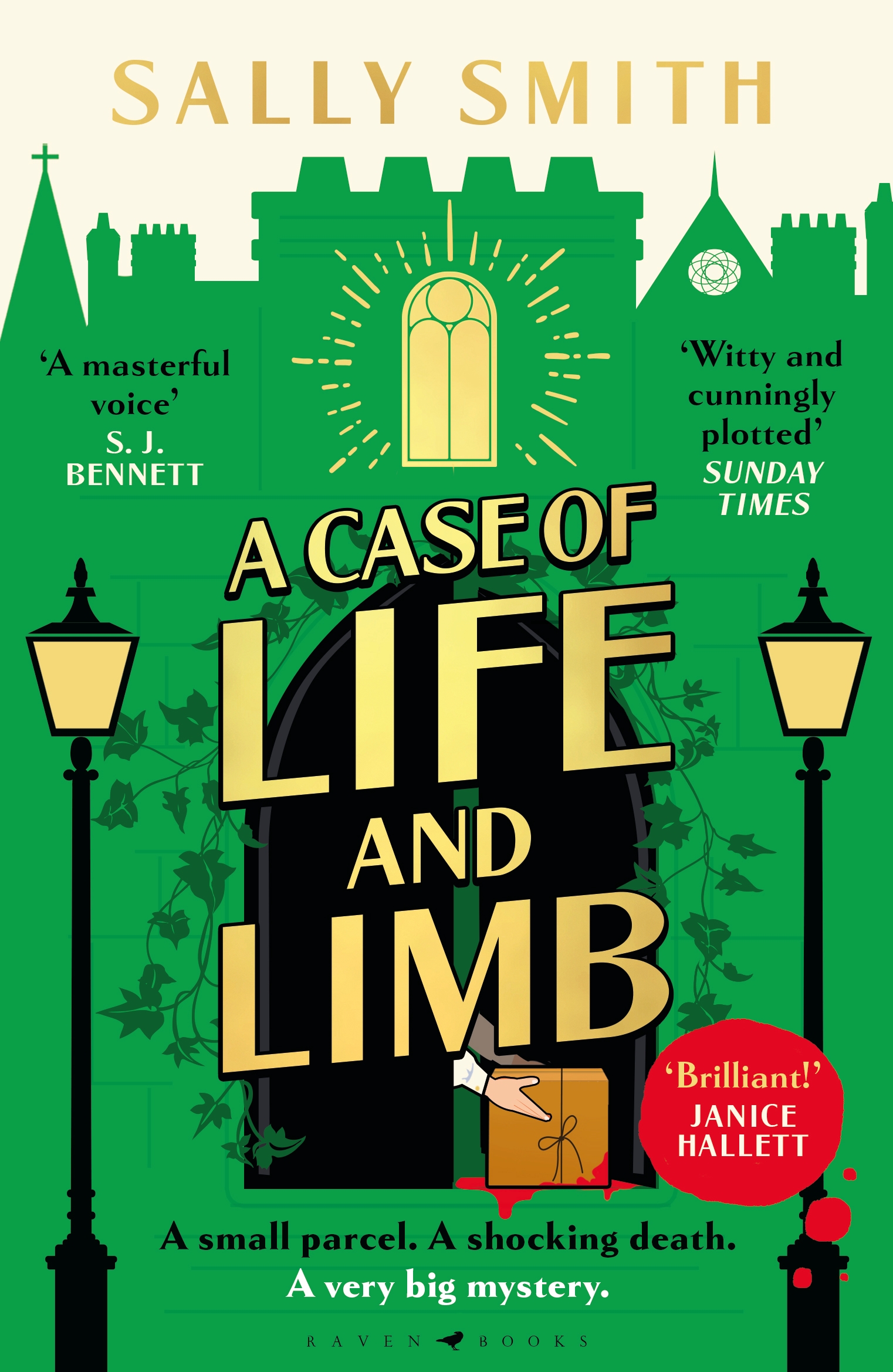Devices and Desires

As seen:
Reviews
Adam Dalgliesh is a Scotland Yard Police Commander who also is a poet. I first met him on television in a series starring Roy Marsden. When I discovered that the series was based on books written by PD James, I began devouring each and every one of them. James is a wonderful author with a beautiful blend of lyrical descriptions and broody dark forboding as well. Her books are usually fairly long because of this detailed story telling. Devices and Desires is a very good example of her craft.
After closing some very difficult cases, Dalgliesh retreats to his aunt's windmill home to close out her estate and to take a break from the stresses of crime solving. The break doesn't last very long as a serial killer pops up in the area. He is determined not to get involved in the investigation until he stumbles across a corpse during a coastal walk. Then he has to catch this murderer.
I highly recommend reading any and all of James' books. This one is a ripper that you will enjoy.
A good old fashioned whodunnit. A long read and a slow burn but expertly crafted.
I suspect I read this book when it was first published as I went through a phase of reading PD James in the '80s. I really enjoyed it this time round despite the fact that there is a lot of descriptive "padding" which, while not strictly necessary, does add to the atmosphere and helps create the sense of place. Adam Dalgliesh is a great character and a memorable detective who approaches the case with his usual sang-froid. I intend to revisit some of PD James other books now as I enjoyed this one so much.
Adam Dalgleish is taking a break from work to tie up his late aunt’s estate. She lived in a windmill in a remote coastal community in Norfolk, overshadowed by a nuclear power station which both provided employment and fuelled dissent among the local population in equal measure. A serial killer is on the loose and when AD stumbles across a body he becomes inextricably involved (to be honest there wouldn’t have been much of a book if he hadn’t).
I read a lot of PD James books in the ‘80s but had moved on to other things by the time this book was first published in 1989. And I missed a treat. There are an eclectic range of characters from all walks of life living in this remote community, and during the course of the book we meet them all and get to know them quite well. Many of them have interesting stories in their own right. And then there is of course Adam Dalgleish himself, a very likeable man who, by the time this book was written has reached the position of Commander in the Metropolitan Police. He is a very personable individual who writes poetry and works for the love of it rather than for money (of which he already has plenty). There is also a very good, if complex storyline which has been well thought out and carefully plotted. However, for me the resounding star of the show was the writing itself. I do not remember PD James’ writing being this good but either it improved dramatically as time went on or, which seems far more likely, I did not appreciate that I was reading such good literature. Not only does the language flow beautifully but her execution of the process of putting the English language into written form is wonderful. Every now and again she adds an additional challenge by inserting an exceedingly long sentence into the proceedings. Midway through one of these sentences I would feel a sense of dread looming as it didn’t seem possible that it was all going to end well. But it always did. As a reader it is very satisfying to reach the end of a long, convoluted sentence and be able to breathe a sigh of relief as the complex nesting resolves itself perfectly, ably abetted by grammar and punctuation which guides us through all the twists and turns – it must be even more satisfying to write a piece of prose of this standard. It really was a pleasure reading something that was this well written.
There were a couple of points which I would classify as downsides, the first of which is that the book is very long, possibly too long. There was a lot of superfluous detail but as I was enjoying the style of the prose so much and was enjoying reading it for reading’s sake I didn’t really see this as too problematic. The second issue was that I thought the ending was weak in comparison to the rest of the book and seemed less well planned. But I can forgive most things and this is certainly one of them as it didn’t detract from my overall enjoyment of the book.
I would recommend this book to anyone who likes a good, well-written crime novel but with the warning that it is a long book. I rarely re-read books but I may well go and dig out some of the earlier Dalgleish volumes and read them again and will certainly look out for later ones which I am unlikely to have read when they were first published.
Adam Dagliesh is at it again in the eighth book of PDJames’ detective series - Devices and Desires. While this book was written more than 30 years ago, it easily passes the test of time. As always a page turner and cracking mystery to solve. I always enjoy these books - I’ve read most of them - because they have lots of detail, are located in charming parts of UK and are easy to read.
The detective is caught up in the murder of a nuclear plant manager as he holidays on the remote area of Larksoken headlands. He has been left an old renovated windmill by a favourite aunt.
There are twists and turns in the story after he stumbles on the dead body of the victim during a beach walk.
PD James’ writing is always tight and there are few wasted words. The story line skips along until the very end revelation of who done it.
Faber has just reprinted several of P.D. James’s novels, and Oundle Crime was lucky enough to be chosen to receive copies of Devices and Desires to read and review. Many of us had read this book before (but years ago) but we were happy to read it again. And, for one reason or another, we all agreed that the re-read had given us a new perspective on the series.
First published in 1989 this was Book 8 of 14 novels about Adam Dalgleish. It’s a quiet and considered story, set in Norfolk, where Dalgleish has gone to pack up the house of his recently deceased aunt. She had lived in an old converted windmill, with cottage attached, on the Norfolk coast, in sight of the Larksoken nuclear power station. The house had been left to him and he wants to spend time there before deciding what he should do with it.
Before leaving London, Dalgleish is reminded by his boss that Norfolk CID are currently chasing a serial killer known as the Whistler. He isn’t expecting to have any involvement in that case, although he does vaguely know Detective Inspector Terry Rickards, the man in charge. At the last minute, he’s also asked by his publishers to drop off some printers’ proofs to one of their cookery writers, Alice Mair, who lives close to his aunt’s house. Doing so, he finds himself accepting an invitation to a dinner party, which is to be held by Alice and her brother Alex a few nights later.
The dinner party is the mechanism by which P.D. James introduces the reader to Dalgleish’s neighbours and builds a picture of the small and rather isolated rural community. Dr Alex Mair is the Director of the power station, so Dalgleish meets some of the people who work there as well as other local residents. When, a few days later, he stumbles across a dead body on the nearby beach, you know that he’s going to be involved in another murder investigation whether he likes it or not.
Our verdict
As the years have passed it’s been easy to forget just what a good writer P.D. James was. Her attention to detail and ability to paint pictures with words is second-to-none, and in this novel you’re quickly immersed in the characters and location. You can see the people in your mind’s eye and everything in the story is vivid and imaginable.
It's not short! The paperback stretches to 598 pages and the main murder doesn’t occur until about one-third through. A couple in our group thought it over-long and the lengthy descriptions overdone. But despite that, they also admitted they’d kept returning to it because they wanted to find out what had happened. The rest of us loved the slow reveals and the way the locations played such a big part in the story. Juno described it as a novel with a crime rather than crime fiction.
The murder investigations are rather dance-like, moving forwards and backwards between the hunt across Norfolk for the serial killer and the specific death on the beach near the power station. Are they linked, or not? If not, what really happened and why? The story meanders around all the various clues and bits of information while the reader tries to piece things together.
In some ways, Adam Dalgleish is the most anonymous character in the novel. Yes, he’s well-described but he always seems slightly detached from everyone else. An observer rather than a player. We think this is partly why he is such a good protagonist. You can never quite put a finger on what makes him tick but he’s central to everything.
Although this was first published 36 years ago the story feels timeless, perhaps because there’s not much in there to become dated, so it's quite restful to read. Seven of us read this book and most of us would be very happy to read another in the series now as well, so getting our hands on these copies has done us a very good turn! It earned two 5-Star ratings, four ratings of 4 or 4+ Stars, and one of 3-Stars.
Review by: Oundle Crime
Oundle Crime thanks Faber for the opportunity to read Devices and Desires by P.D. James. We are voluntarily giving an honest review.






